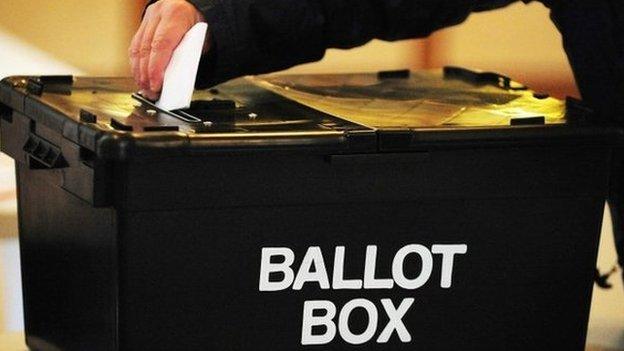Election 2017: How do you engage Wales' youth to vote?
- Published
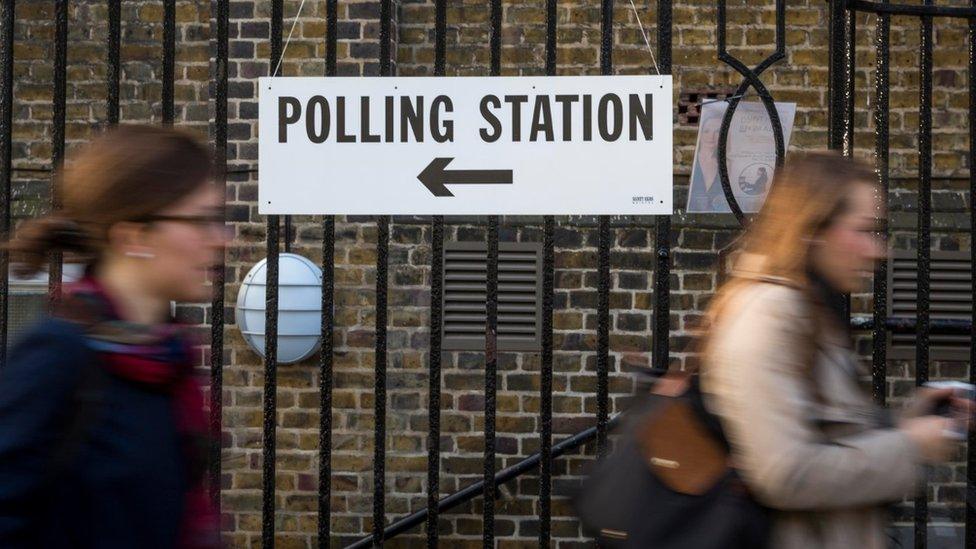
Another election brings another question over how to get more young people to vote. But what can be done to get them to engage and what difference could their votes make in Wales?
Only 43% of 18-24 year olds in the UK voted in the 2015 general election, compared to 78% of the over 65s.
Reasons often cited include apathy and a lack of youth policies.
But with many marginal seats in Wales, could their vote count now more than ever?
Electoral Commission data shows 72% of eligible 18-34 year olds in Wales are registered to vote - compared to 84% of 35 to 54-year-olds and 93% of over 55s.
Despite those figures, the biggest spike in applications this year came on 18 April - the day the snap general election was announced.
About 150,000 people signed up - with 58,000 of those aged under 25.
Since the election was called, two million people have applied for a vote - with the number of young people requesting registration the highest of any age group.
A positive sign, but they still have to turn up on 8 June and, for some, the motivation to take part is still lacking.
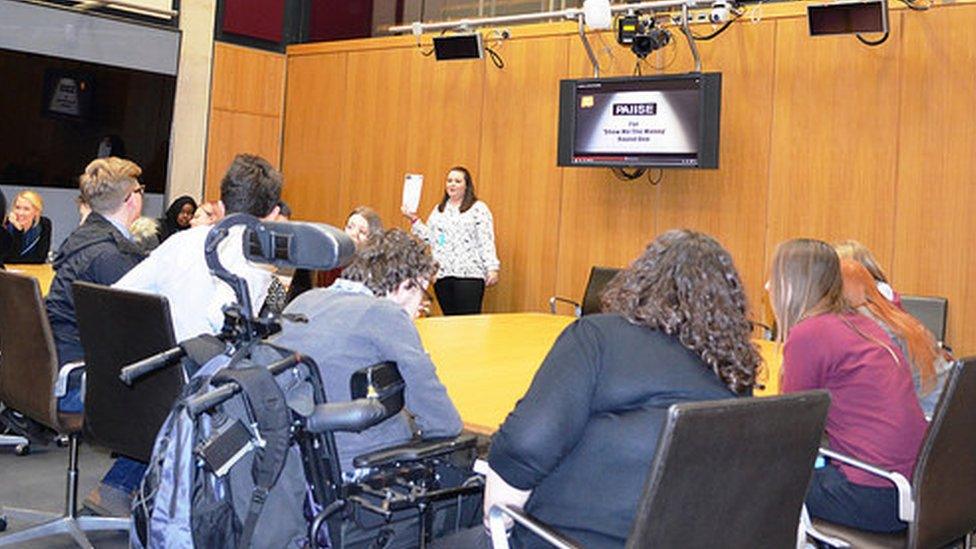
Lizzy Fauvel (centre) giving a political workshop with young people
Lizzy Fauvel, a support worker with charity Youth Cymru, said the key to increasing engagement was to make politics interesting and more relevant to young people.
She holds political workshops in schools and with youth groups across Wales in a bid to increase participation.
The 24-year-old said a lot of the people she meets do not believe their opinion matters or are uninterested because policy is discussed in a confusing way.
She said: "A lot of people don't know they can register at 16 and a lot of them say 'what's the point?'; 'there's not going to be any change'; 'we won't make a difference'.
"I think jargon is the major one - when you are watching TV people want to turn off because they don't understand what they're [politicians] talking about.
"I think when parties bring out manifestos there's never really anything at the forefront for young people and so young people don't think politics affects them."
That said, Miss Fauvel hopes this election could be different.
"When the snap election was announced, thousands of young people registered to vote," she said.
"The EU referendum made politics exciting because people weren't voting for a person, they were voting yes or no and it made people excited about politics.
"I think maybe, because of Brexit, people will be looking into politics more."
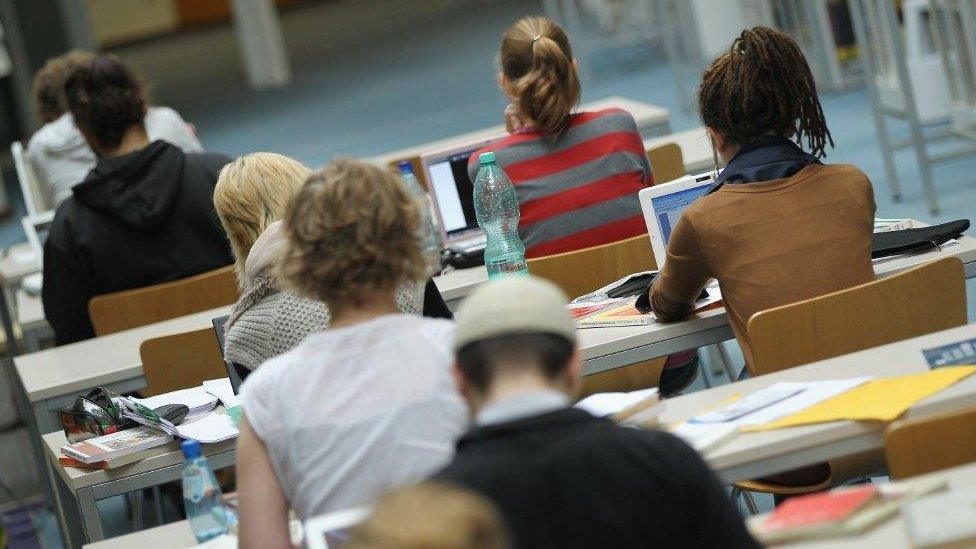
NUS Wales has long called for better voter education and has previously, yet unsuccessfully, campaigned for political education to be mandatory in schools.
It has also pushed for universities and colleges to automatically register students to encourage more people to turnout.
A spokeswoman said all too often the policies shouted about by politicians appealed to the older generation, such as pensions, which left young people searching for a reason to care.
She said: "If we keep just appealing to older voters, policy will keep benefitting older people and we just get into that same cycle of apathy."
But she too was hopeful the EU referendum would spur more on to have their say.
She said: "Students and young people on the whole voted to stay in [the EU] and we came out.
"And there are a lot of things in the EU that are relevant to young people - studying and working abroad.
"But there is a danger that if they voted for the first time and it didn't go their way, it could put them off [voting this time]."
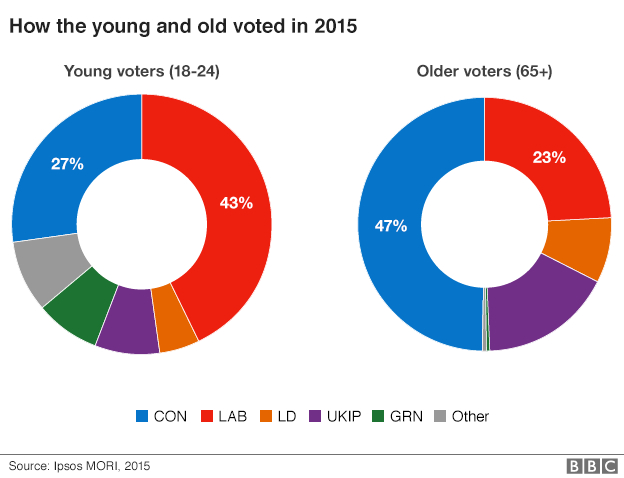
The latest research shows that if young people turned out like older people, and 78% of 18-24-year-olds had voted in 2015, that would have equated to almost two million extra votes across the UK.
But what impact could that have on Wales' political make-up this time around?
Dr Sam Blaxland, a political historian at Swansea University, said that while it may not result in great swings, it could make all the difference in the areas vulnerable to changing hands.
"Wales has got a lot of marginal seats - a lot marginally held by Labour, like Newport seats, Bridgend and Ynys Mon," he said.
"If you had a much more engaged youth vote, there's almost certainly a chance that it could swing things.
"My experience as a university tutor matches that old adage that young people tend to be quite idealistic and on the left end of the political spectrum.
"So they could make all the difference [for Labour]."

What do students think?
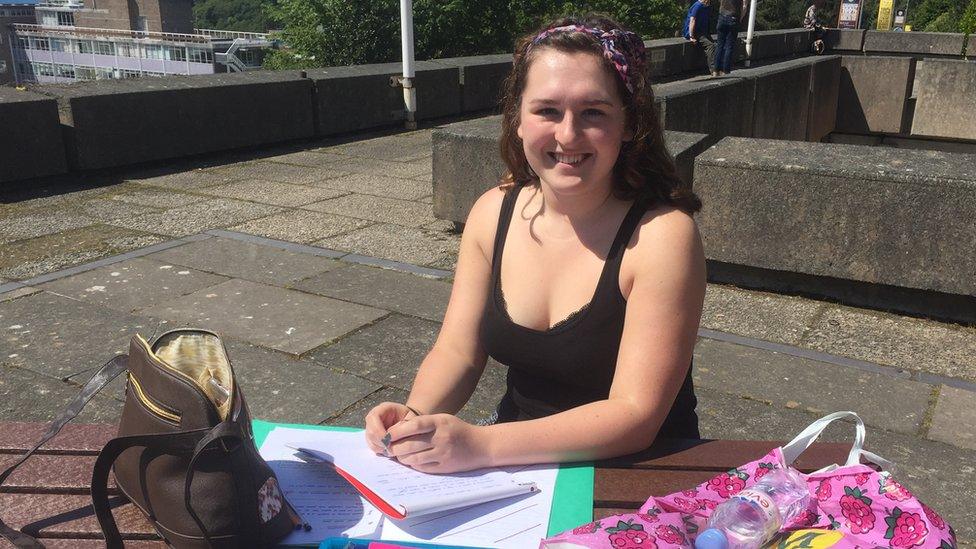
Second-year Aberystwyth University student Jodie Breakwell, 22, will vote but said she does not feel inspired by current issues.
"I'm not passionate about politics, but women fought to be able to vote so to not do so would feel a bit bad," she said.
"I've found out a lot about politics from my grandparents and my boyfriend knows quite a bit about it, but apart from that I don't really feel inspired."
Fellow student Jenny Case, 21, said her motivations for voting in this general election were different to last time.
"I'm Scottish so I care a lot about the Brexit issue, I think it has massive implications especially for Scotland as we are in a unique position - largely we didn't vote for it," she said.
"This does make it a bit different, it peaks my interest and emotion."

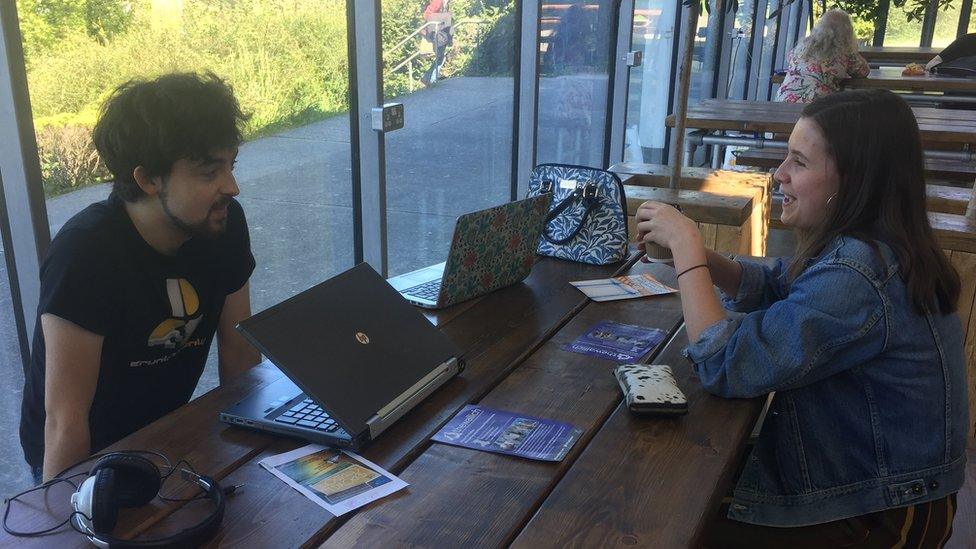
Kurt Hodges, 20, and Jenny Case, 21, talk politics over coffee and coursework
Another potential issue is the timing of the vote - at a time many students are either doing exams or are leaving student accommodation to go home for the summer.
Student Kurt Hodges, 20, will try to vote but admits the timing is problematic.
"I have to vote at home, we get kicked out of our student house here and that's difficult. I might register for a postal vote, but I don't know where I'll be," he said.
"A lot of people will be in the middle of their exams so it does make it awkward, I don't know, it might stop some people, and yes, I think this could have an impact on the result, it's an awkward time of year."
But the Electoral Commission said there was still time for people to sign up.
"The Electoral Commission is encouraging everybody - particularly young people and students - to make sure they are registered to vote at their current address," a spokesman said.
"Students can register at both their home and term-time addresses as long as they only vote in one place.
"It only takes about five minutes to register and the good news is that you've still got time to go online and register to vote before the deadline of 22 May. Don't miss out."
- Published29 April 2017
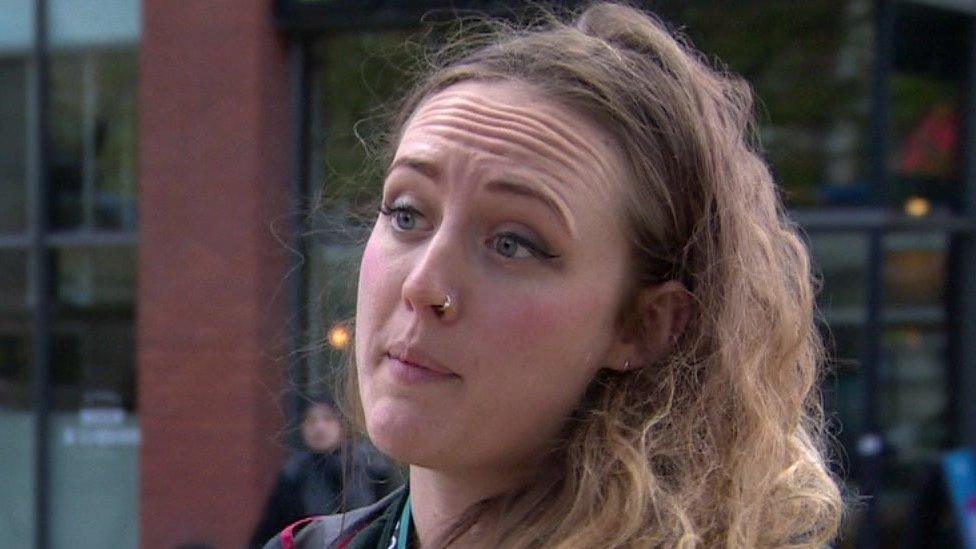
- Published19 May 2017

- Published15 May 2017
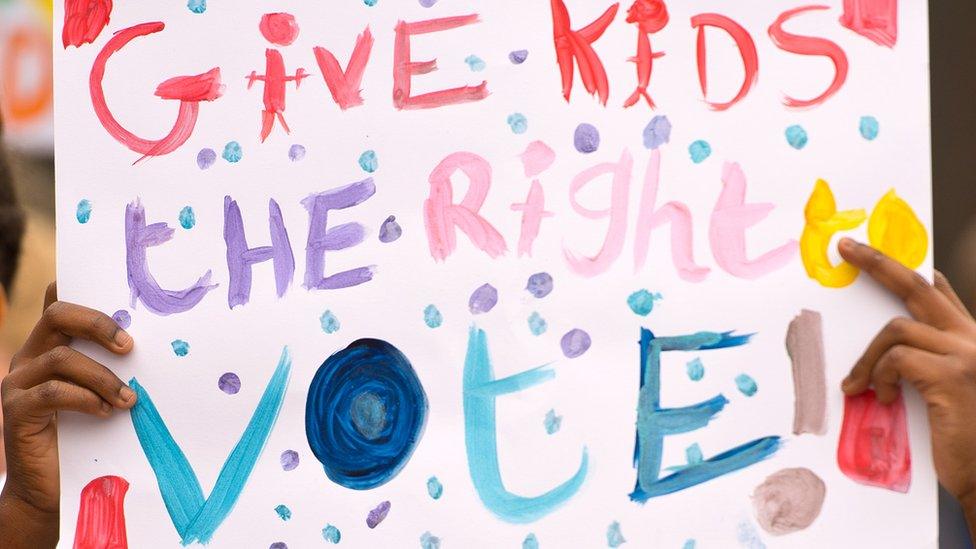
- Published8 July 2016
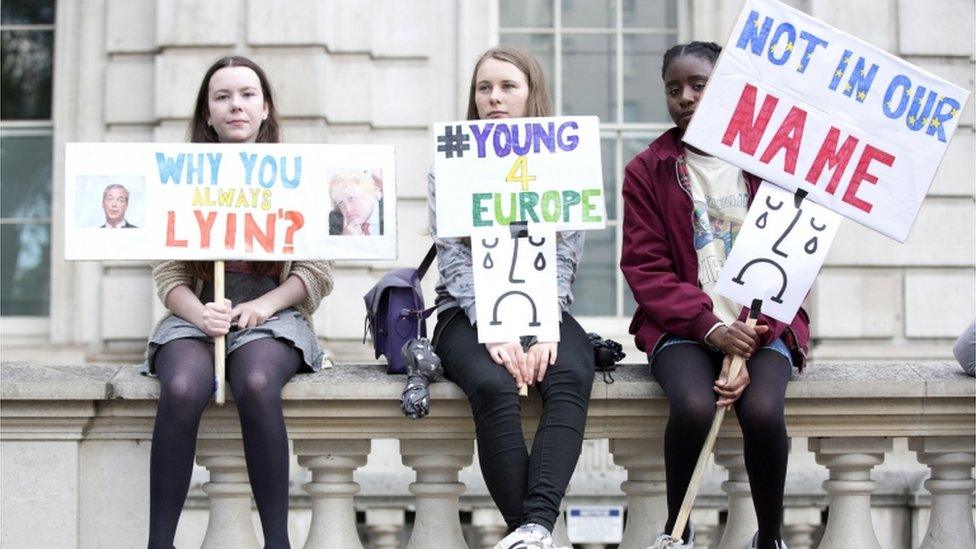
- Published29 December 2014
